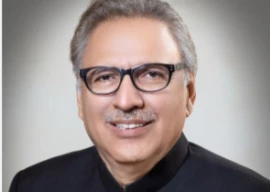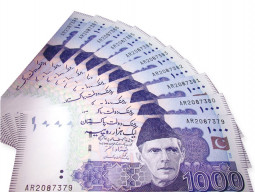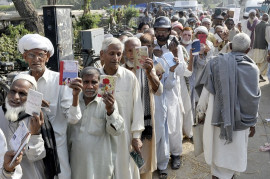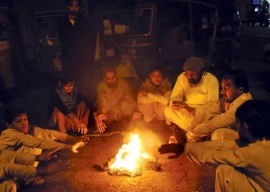
The National Electric Power Regulatory Authority (Nepra) has allowed eight of the nine power distribution companies in the country to increase their tariffs by an average of Rs1.04 per unit, or about 16.5%, a change that will be reflected in the electricity bills for the month of August.
The change has been allowed on account of higher fuel prices. The average unit cost of electricity, according to data available on the Nepra website, is currently Rs6.29 per kilowatt-hour (kWh), the standard unit of electricity sold on the national grid.
The rise in prices will be reflected in the bills of consumers of electricity in all parts of the country except Karachi, which is supplied by the only privately-owned, and only fully integrated, utility company in the country. Nepra makes decisions for the Karachi Electric Supply Company separately.
The tariff hike was allowed by Nepra during a public hearing in response to a petition filed by the Central Power Purchasing Agency (CCPA) – a government-owned entity – which had requested a rise of Rs1.13 per unit.
CPPA had cited the rising prices of furnace oil and diesel during the month of June, the period being considered during the hearing. Officials from the CPPA said that prices of furnace oil had risen to Rs64,000 per ton, a 56% increase which had caused the utility to seek permission to charge higher prices from its customers.
Nepra, however, revised CPPA’s claim downwards and instead only allowed a Rs1.04 per unit rise.
Pakistan gets approximately 34.5% of its total electricity supply – or about 3,109 gigawatt-hours – from oil-fired power plants. The average cost for these comes to Rs14.75 per unit.
The country also has cheaper supplies of power, with gas-fired electricity supplying 24.6% of the national power supply and costing only about Rs9.65 per unit. But Pakistan’s gas fields are being depleted rapidly and not being replaced fast enough, resulting in more and more power plants relying on oil rather than gas.
This in turn has led prices of electricity to keep on rising, though not fast enough to keep pace with the cost of production, resulting in prolonged power outages throughout the country. The share of electricity generated from gas-fired power plants dropped by 2.5% of the total electricity produced in the national grid during the month of June alone.
The cheapest and most abundant form of electricity production in the country remains hydroelectric power, which accounts for about 38% of total production – or 3,302 gigawatt-hours – and costs an average of Rs0.17 per unit.
Yet, hydroelectric power remains a highly politicised issue in the country, with several political parties – including the ruling Pakistan Peoples Party – opposing the construction of large dams. The Kalabagh Dam, first proposed in the 1970s, has yet to be built because of this issue.
However, there seems to be more movement on the hydroelectric power front. The government has secured $6 billion in funding from the Asian Development Bank for the $12.5 billion Diamer-Bhasha dam project, which would have the capacity to produce 4,500 megawatts of electricity.
The next cheapest source of electricity is coal, which costs an average of Rs3.9 per unit, but only produces about 0.1% of the total electricity produced in the country. The Sindh government has recently begun soliciting bids to develop the Thar coalfields, estimated to be the third largest in the world.
Published in The Express Tribune, August 3rd, 2011.
COMMENTS (3)
Comments are moderated and generally will be posted if they are on-topic and not abusive.
For more information, please see our Comments FAQ























Assalam-o-Allaikum Warahmatullah.The Ramadan gift for the Pakistani nation from the corrupt government's leaders whereas Federal Minister for WAPDA has given a hypocritical statement in a Urdu newspaper "Daily Express" few days ago that now no more electricity charges shall be increased because lot of electricity tariffs have been increased.Do you consider that our present corrupt leaders are making Pakistan an Islamic Welfare State in real and practical sense or collecting more and more money in their foreign bank accounts so that they could live kingly life after escaping from Pakistan after ending the government's tenure?Decisive steps should be taken by the poor and middle class related man either they shall support and vote the present corrupt leaders in the next general election if they participate again not by the privileged class related man.